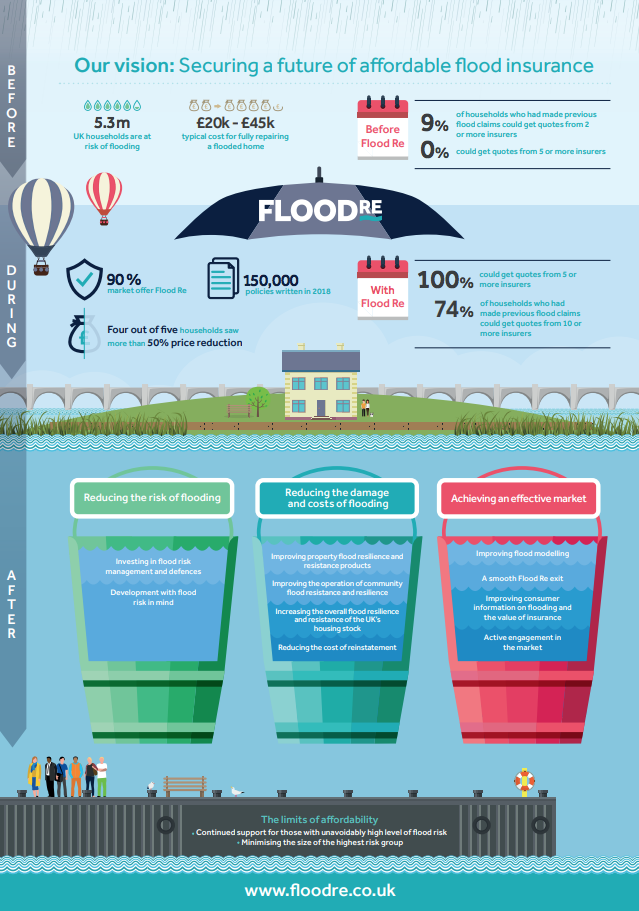By 2039
Flood Re has recently released its second transition plan – titled Flood Re, Our Vision: Preparing for a future of affordable flood insurance – which outlines its latest thinking on moving to affordable risk-reflective pricing by 2039.
The vision sets out 12 areas where Flood Re believes things need to change. These include limiting the risks of flooding; reducing the costs of flooding; promoting a competitive insurance market; and understanding the limits of affordability.
Key themes include:
– Defining affordability: An affordable market will be in place in 2039 if Flood Re can cease to exist without household insurance premiums and excesses for the majority of at risk-properties increasing and without the penetration of household flood insurance reducing significantly in at risk-areas.
– A recognition that limits apply: For some households at the very greatest risk of flooding, the investment needed to reduce risks will always be uneconomic. This means that, even with a successful transition, there will be a small number of households where flood insurance is likely to be viewed as unaffordable. To tackle this, policymakers will need to decide whether some form of support continues beyond 2039. It is important that during the course of the next 21 years action is taken to reduce the number of properties that would fall into this category.
– Responsibility: Action will be needed from Government bodies, the insurance industry and from householders.
– Key principles to determine when Flood Re intervenes: these are additionality, expertise, impact, sustainability and partnership.
“Millions of properties in the UK are exposed to some degree of flooding. When flooding occurs, the costs to individuals, families, communities and even whole regions can be devastating. Our Vision’ is an important milestone for Flood Re achieving a successful transition. By 2039, when the Scheme end, the market needs to have risk-reflective pricing and at this point we also want to ensure that both premiums and excesses remain affordable for the majority of households at risk of flooding. To achieve these two objectives, action will be needed from all interested parties – including the Government, the insurance industry, communities and individual householders themselves. Flood Re will play an important role in supporting this activity, convening and coordinating and, where we can, taking direct action. We look forward to working with others to ensure a successful transition over the next two decades.” – Chief Executive of Flood Re, Andy Bord.
View the transition plan here.




